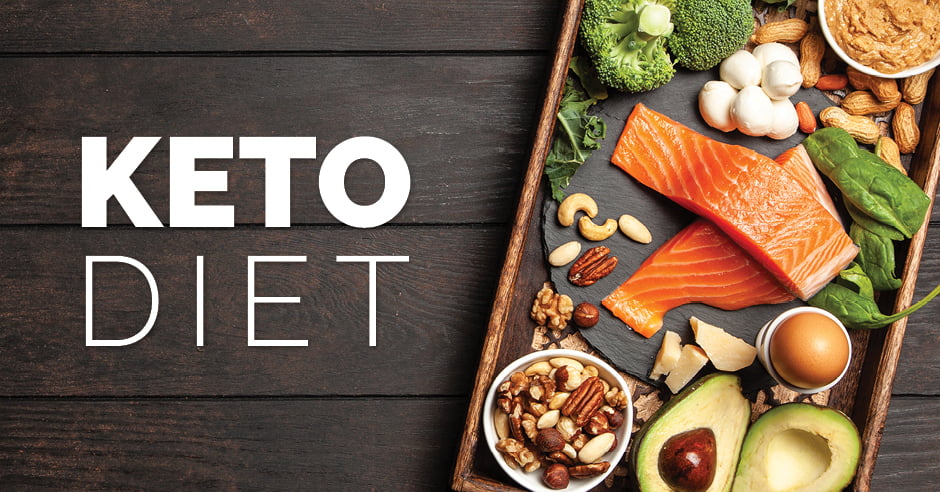The Keto diet is a high-fat, moderate protein, and low carbohydrate diet that can raise blood ketone levels to promote weight loss. It’s not just for people with epilepsy anymore. This article will explore how the ketogenic diet works, who uses it, what you can eat on it, its benefits and side effects as well as where to find more information about it.
Contents
- 1 What is Keto Diet
- 2 How Keto Diet Works
- 3 Who All Use Keto Diet
- 4 Who All Should Avoid Keto Diet
- 5 How To Avoid Deficiencies In Keto Diet
- 6 Keto Diet And Weight Loss
- 7 Keto Diet In Disease Prevention And Recovery
- 8 Benefits Of Keto Diet
- 9 Side Effects Of Keto Diet
- 10 Nutritionists And Dieticians On Keto Diet
- 11 Conclusion
What is Keto Diet
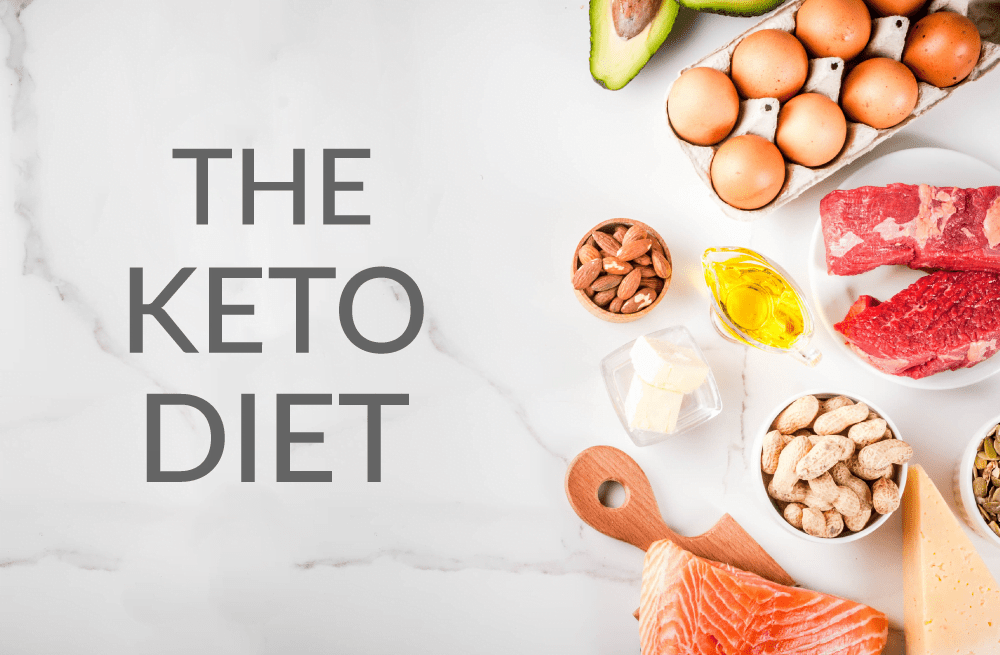
The Keto diet was designed in the 1920s by Dr. Russell Wilder at the Mayo Clinic to treat patients with refractory epilepsy (seizures).
The original plan allowed 60g of carbohydrates per day. But only 10g had to come from sugar or starch. That means plenty of low-carb vegetables, nuts, and seeds.
In the 90s a modified version of the keto diet was introduced. It allowed protein intake to be 20% to prevent loss or stress on lean body mass (muscle).
The ketogenic diet has recently resurfaced in the 90s and 2000s thanks to several doctors like Dr. Atkins. He published a book on this topic (Dr. Atkin’s Diet Revolution).
Nowadays, many people are using this new form of the keto diet for fat loss or disease prevention.
How Keto Diet Works
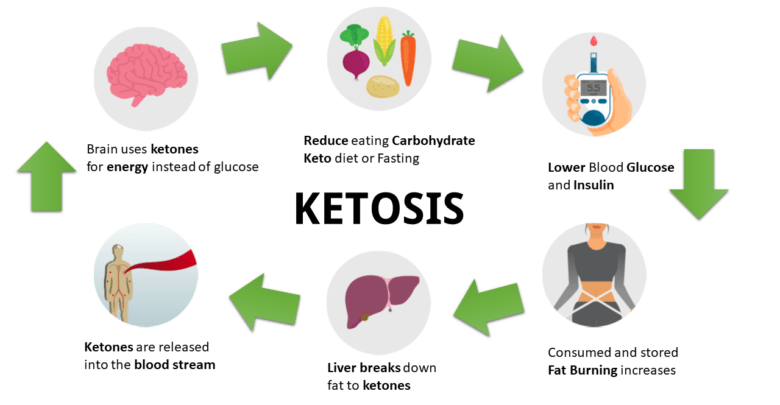
The Keto diet is a low-carb high-fat and moderate-protein-based weight loss supplement. It has been found that this type of diet can be very effective to achieve the desired goal with less effort.
The process starts when our body goes into ketosis, where it breaks down fat into ketones and begins to use them as energy instead of glucose.
The Keto diet works well in several different ways for all age groups. That is from children to seniors, from athletes to people recovering from cancer or diabetes treatment.
The process is easy enough that anyone can do it without any special preparation or equipment needed.
People who use this diet plan often go to completely different levels of energy and mental focus than when on a high-carb low-fat meal.
Who All Use Keto Diet
Many people still think that keto diets are only for weight loss. But the same process can help you gain muscle mass or achieve better endurance during exercise if your main goal is to improve your athletic performance. Furthermore,
- Ketogenic diets are used by people suffering from epilepsy, diabetes, and even cancer.
- Some people also use low-carbohydrate diets to lose weight because they feel that it reduces their appetite and food cravings.
- In some special cases when drugs or other medical therapies were not effective enough for the health conditions of people
- If you’re suffering from epilepsy, your doctor may prescribe a ketogenic diet to reduce the number and severity of seizures.
- Also, ketogenic diets are used by bodybuilders and athletes to improve their muscle mass or recover faster after a workout.
- In cases to improve alertness and cognitive function in children with conditions such as:
- Tuberous sclerosis complex (TSC),
- Down’s syndrome,
- Autism spectrum disorder (ASD) when used together with other therapies
Who All Should Avoid Keto Diet
It may help you lose weight or improve your athletic performance but you must follow a healthy diet plan while doing so. Dieticians can also provide valuable advice when following the keto diet plan. Moreover,
- It should not be followed by individuals who are taking medications for diabetes
- Ketogenic diets are not recommended for pregnant or breastfeeding women,
- People with type I diabetes and individuals are younger than 18 years of age.
- Also, ketogenic diets may not be appropriate for people who have gout or kidney disease.
- Finally, ketogenic diets may be harmful to people with certain metabolic disorders
Note: Eating a high amount of fat and low carbohydrate with adequate protein intake might not be safe for your health in the long run. Over time, a strict low carbohydrate diet can lead to vitamin and mineral deficiencies as well as bone loss due to the lack of calcium in this type of eating plan. So consult your doctor before making any major changes to your lifestyle.
How To Avoid Deficiencies In Keto Diet
One of the biggest concerns with the keto diet is how it can lead to deficiencies. The main reason for this concern is carbohydrates.
Carbohydrates are one of the biggest sources of nutrients in our daily food intake. So when you remove them from your diet, you end up missing out on a lot of important things that promote good health and happiness.
Also, when it comes to the keto diet, you need to make sure that your food intake is rich in micro-nutrients. So that there are no deficiencies during the process of following this kind of lifestyle.
Some Tips
Here are some things you can do to avoid becoming deficient during the process of following a keto diet:
- Pay attention to what kinds of foods you eat when on this diet plan. Carbohydrates are out. Fats and protein are in! You’ll start eating more meat than before along with some vegetables (just don’t overdo the carb intake).
- Reduce your consumption of fruits and dairy products. You can still eat them, but just in much smaller amounts than before. It will be easier for you if they are mixed with other foods. So it becomes a small part of your meal instead of being its main component. This way, you’ll also reduce the number of calories you intake every day.
- See what kinds of drinks and snacks you have during the day. If they are high in carbohydrates or sugars, it will be difficult for your body to process them while following a keto diet so avoid these at all costs!
- Try drinking water instead of soda or fruit juices. Not only will this help you avoid deficiencies, but it’ll also rid your body of unnecessary calories that can lead to weight gain in the future.
- Monitor the supplements you take while following a keto diet plan. Some certain vitamins and minerals might become deficient while you are on a keto diet. This is why it’s important to take supplements while eating this way. So that your body gets what it needs each day and stays healthy in the process.
- For people who don’t like taking vitamins, there’s one more thing they can do: Drink bone broth. This is a great source of micro-nutrients and it’s very cheap. It also tastes good so you won’t have to force yourself to drink something that isn’t up your alley!
NOTE: If you feel like there are some changes in your body as far as the way it reacts with certain activities, immediately consult your doctor. You might be deficient in something important without realizing it. So you need to ask for help before things get out of hand!
Keto Diet And Weight Loss
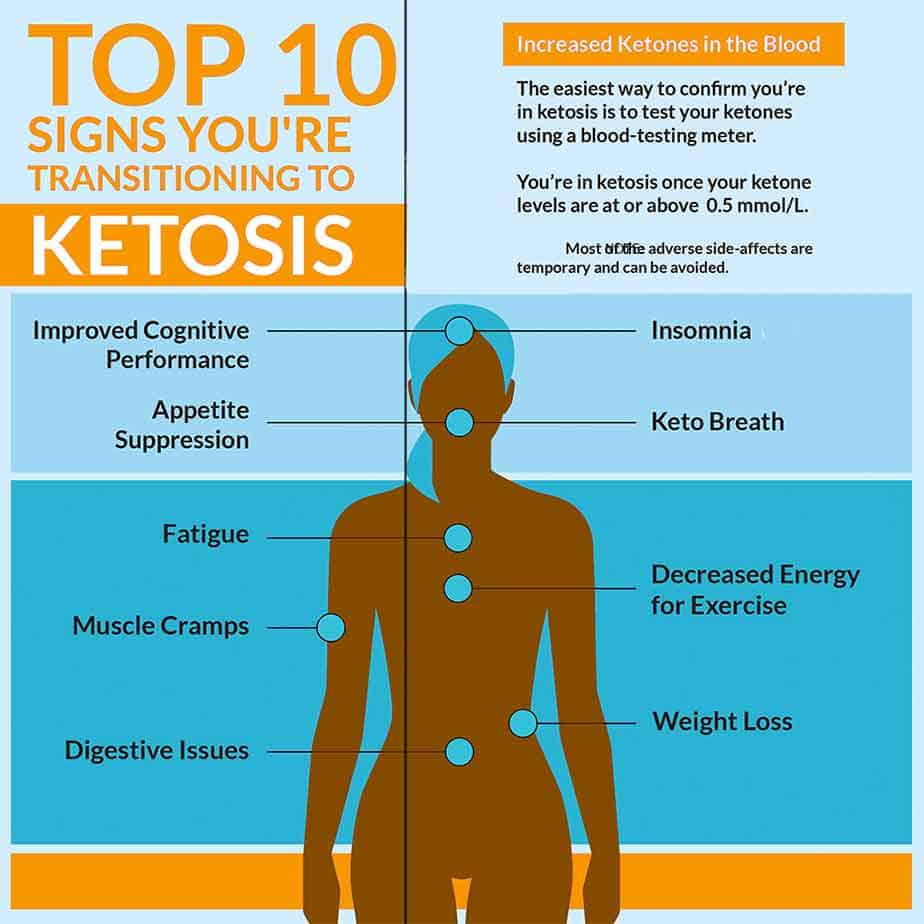
The keto diet is considered a high-fat, low carbohydrate diet with moderate protein intake (20%). The idea behind the plan lies in forcing cells to depend on fat for their energy supply instead of sugar. This process is called ketosis where you burn body fat instead of glucose.
Ketosis
Ketosis is a state where the liver produces ketones which are water-soluble molecules produced from fat by the liver during fatty acid metabolism. They can be used as an energy source when blood sugar levels are low or have not been available for some time. Ketones consist of acetoacetate, beta-hydroxybutyrate, and their spontaneously formed acetone.
Losing Weight
People on the ketogenic diet report feeling less hungry even though they are losing weight. This is because low carbohydrate diets have been associated with appetite suppression thanks to higher satiety hormones being produced by fat cells (cortisol). They also tend to lose more weight than those following other diets. This is most likely due to the high protein intake which can inhibit weight loss by increasing insulin levels (protein triggers an increase in IGF-I).
Keto Diet In Disease Prevention And Recovery
Since, Ketosis is a state in which your body produces elevated levels of “ketones,” or organic compounds that contain oxygen combined with carbon and hydrogen atoms. Therefore, a Keto diet is a great option as it can help control the symptoms of different diseases:
- Diabetes,
- Cancer,
- Epilepsy,
- Heart Conditions
Another benefit of keto diets in disease prevention is their effect on the brain. Ketones can cross from our bloodstream into our brains. It helps protect against neurological disorders like:
- Alzheimer’s Disease
- Parkinson’s Disease
Further, it helps them maintain their blood sugar levels by controlling insulin as it is a low carbohydrate, high fat, and moderate protein-based nutrition plan.
Benefits Of Keto Diet

The first benefit is weight loss, which can be especially helpful if you have a significant amount to lose. Another benefit of the keto diet is that it brings some great changes in your body’s ability to burn excess fat.
Some other benefits include:
- Increased Energy,
- Better Mental Focus,
- Less Brain Fog, and
- Improved Mood
While keto diets are known to be safe for the majority of people who try them under supervision, there are some possible side effects that you should know about before starting this type of nutrition plan.
Other Benefits
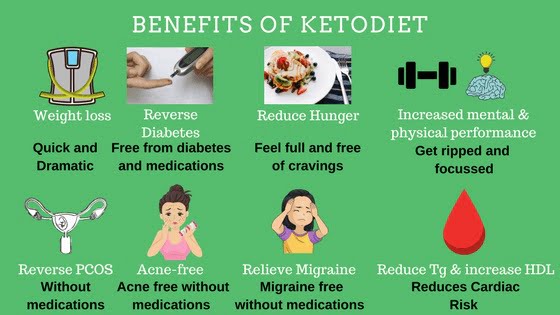
Other benefits come with following a keto diet. It has been found helpful for improving:
- Blood Pressure,
- Triglyceride Levels,
- HDL Cholesterol Levels, and
- Type II Diabetes
These benefits come with having a low carbohydrate intake because the body can use fat for energy rather than carbs, which are limited in this diet.
People who suffer from epilepsy often benefit greatly by following a keto lifestyle due to its anti-seizure properties. This is why it is so important that you consult your doctor before making any dietary changes.
There are various ways to follow a keto diet, depending on your lifestyle and food habits. If you’re not sure how it works or if it’s right for you, consult with an expert before trying this approach!
Side Effects Of Keto Diet
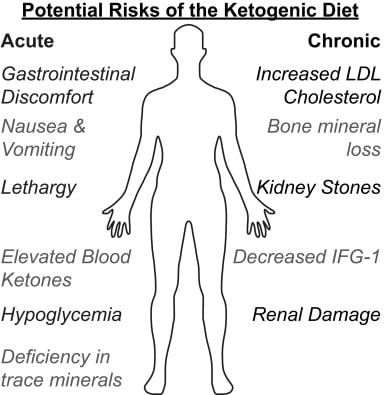
It is not unusual to be deficient in potassium, magnesium, and calcium on the keto diet plan. Apart from the potential of experiencing nutrient deficiencies if you’re not careful about your food choices while on keto, the main downside to this diet is that it can get pretty expensive. Since you have to purchase exquisite and special foods for the plan. Also, Some side effects of keto diets may include:
- Fatigue
- Nausea
- Bad breath
- Low Blood Sugar
- Constipation or Diarrhea
- Changes in activity levels
- Appetite suppression
- Electrolyte Imbalance
- Kidney Stones
Tip: You can avoid these side effects by adding more salt to your diet and drinking plenty of fluids.
Nutritionists And Dieticians On Keto Diet

Although we have discussed ketosis, the role of the keto diet in weight loss and disease recovery. However, it is even better to substantiate the claims by quoting a study published by the International Journal of Environmental Research and Public Health, researchers from Saudi Arabia.
It states that ketogenic diets may help control blood sugar levels in diabetics. They also show great promise for those with Alzheimer’s disease as well as other neurodegenerative disorders such as Parkinsonian diseases or multiple sclerosis (MS).
As we know, the ketogenic diet consists of high-fat, adequate protein, and low carbohydrates. This dietary program has many benefits for the body such as weight loss or management, blood sugar regulation, increased energy levels, and protection against disease (for example heart disease).
But it also comes with side effects that you should be aware of before taking on this type of diet.
Conclusion
The ketogenic diet is a low carbohydrate, high-fat diet that forces the body to burn fats rather than carbohydrates for energy. By following this method of eating, your body enters into ketosis where it starts using up its own stored fats as well as any excess fat in your system (through food or exercise). This will help you lose weight and reduce cravings while also giving you more control over blood sugar levels which can improve diabetes symptoms.
If you need more such weight loss diet suggestions, then contact Mantra Care. Their team of experts will help you develop a healthy weight loss program that is tailored to your specific needs and goals. You can also get in touch with their nutrition experts and expert dietitians through their online nutrition counseling, who can guide you through the process and help you achieve your fitness goals.
